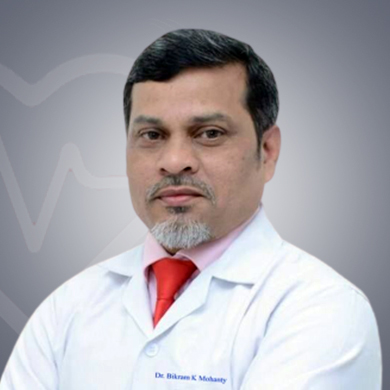
Cardio Thoracic & Vascular Surgeon
Verified
Venkateshwar Hospital , Delhi, India
27 Years of experience
Speaks: English
USD 50 USD 42 for video consultation
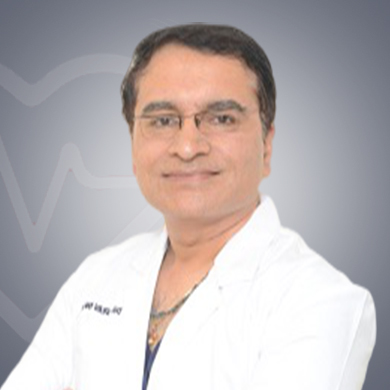
Cardio Thoracic & Vascular Surgeon
Verified
Max Super Specialty Hospital, Vaishali , Ghaziabad, India
25 Years of experience
Speaks: English
USD 36 USD 30 for video consultation
Dr Gaurav Mahajan is one of the best Cardiac Surgeon in Ghaziabad, India. The clinician holds over 18 years of experience and is associated with Max Super Specialty Hospital, Vaishali.
Association and Memberships Dr. Gaurav Mahajan is part of:
Qualifications :
Hospital Address :
Max Super Speciality Hospital, Vaishali, near Radisson Blu Hotel, Sector-1, Vaishali, Ghaziabad, Uttar Pradesh, India
Medical Expertise of Dr. Gaurav Mahajan
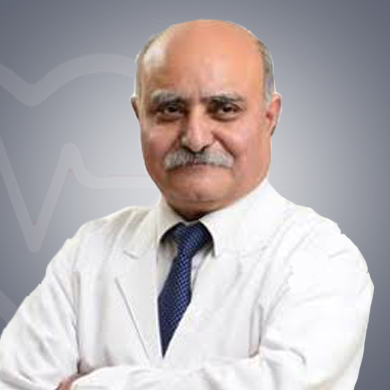
Cardio Thoracic & Vascular Surgeon
Verified
Fortis Hospital , Noida, India
36 Years of experience
Speaks: English
USD 60 USD 50 for video consultation
Dr. Ajay Kaul is one of the most skillful Cardio Thoracic & Vascular Surgeon in New Delhi, India. The clinician holds over 36 years of experience and is associated with Fortis Hospital.
Association and Memberships Dr. Ajay Kaul is part of:
Certifications :
Qualifications :
Hospital Address :
Fortis Hospital, Rasoolpur Nawada, Industrial Area, Sector 62, Noida, Uttar Pradesh, India
Medical Expertise of Dr. Ajay Kaul
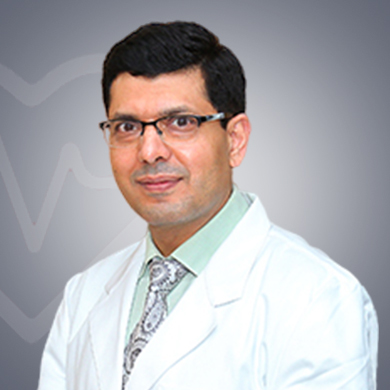
Pediatric Cardiologist
Verified
Indraprastha Apollo Hospital , Delhi, India
23 Years of experience
Speaks: English
USD 60 USD 50 for video consultation
Dr Ashutosh Marwah is one of the top Cardiologist in New Delhi, India. The medical specialist holds over 20 years of experience and is associated with Indraprastha Apollo Hospital.
Association and Memberships Dr. Ashutosh Marwah is part of:
Certifications :
Qualifications :
Hospital Address :
Indraprastha Apollo Hospitals, Mathura Road, Sarita Vihar, New Delhi, Delhi, India
Medical Expertise of Dr. Ashutosh Marwah
Using MediGence’s Telemedicine Platform, you can book a personalized video consultation with renowned doctors around the world
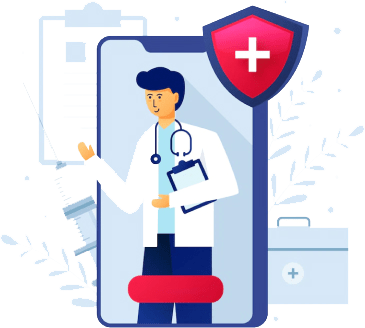
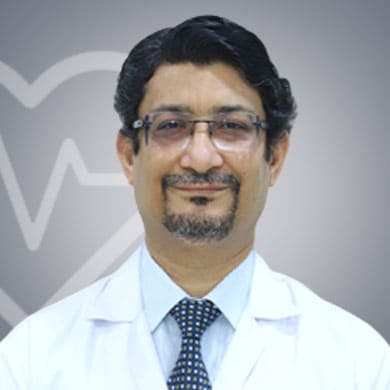
Cardiologist
Verified
Pushpawati Singhania Research Institute , Delhi, India
21 Years of experience
Speaks: English
USD 38 USD 32 for video consultation
Dr Sameer Mahrotra is one of the most sought after Cardiologist in New Delhi, India. The medical practitioner holds over 21 years of experience and is associated with Pushpawati Singhania Research Institute.
Association and Memberships Dr. Sameer Mahrotra is part of:
Qualifications :
Hospital Address :
Pushpawati Singhania Research Institute, Phase II, Sheikh Sarai, New Delhi, Delhi, India
Medical Expertise of Dr. Sameer Mahrotra
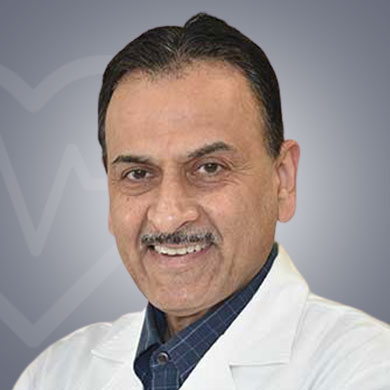
Interventional Cardiologist
Verified
Sanar International Hospital , Gurugram, India
30 Years of experience
Speaks: English,Hindi
USD 60 USD 50 for video consultation
DK Jhamb is a specialized Heart Specialist. And one of the most sought after medical specialists in India. The doctor has 30 Years of experience and is associated with, one of the best hospitals in Gurugram, India.
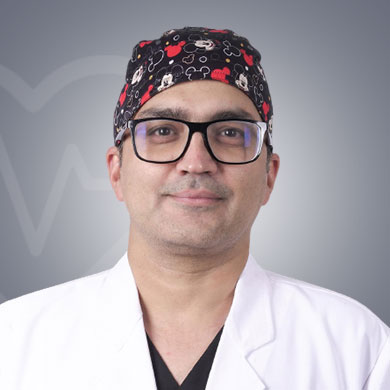
Pediatric Cardiac Surgeon
Verified
Amrita Hospital , Faridabad, India
14 Years of experience
Speaks: English,Hindi
USD 45 USD 40 for video consultation
Dr. Katewa has expertise in performing surgery for pediatric and congenital heart ailments.
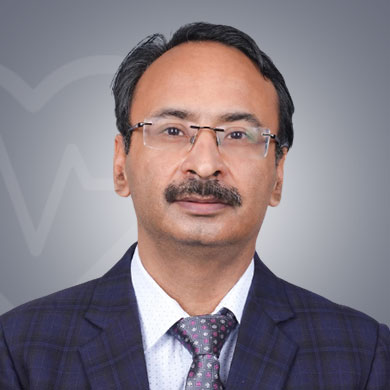
Pediatric Cardiologist
Verified
Amrita Hospital , Faridabad, India
19 Years of experience
Speaks: English,Hindi
USD 54 USD 45 for video consultation
Dr. Azad has expertise in congenital heart diseases and has performed more than 4500 cardiac interventional procedures.
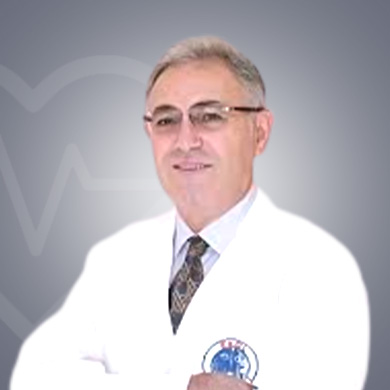
Interventional Cardiologist
Verified
Ekol Hospital , Izmir, Turkey
25 Years of experience
USD 90 USD 75 for video consultation
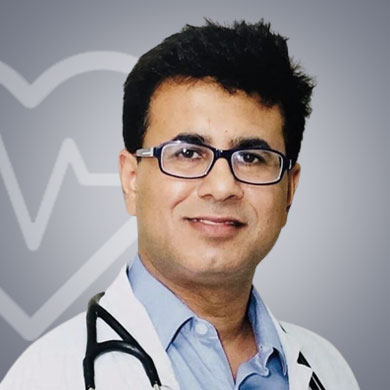
Interventional Cardiology
Verified
Max Super Specialty Hospital, Shalimar Bagh , Delhi, India
21 Years of experience
Speaks: English,Hindi
USD 38 USD 32 for video consultation

Pediatric Cardiologist
Verified
Indraprastha Apollo Hospital , Delhi, India
27 Years of experience
Speaks: English
USD 60 USD 50 for video consultation
Dr Manisha Chakrabarti is one of the leading Cardiologist in New Delhi, India. The doctor holds over 21 years of experience and is associated with Indraprastha Apollo Hospital.
Association and Memberships Dr. Manisha Chakrabarti is part of:
Certifications :
Qualifications :
Hospital Address :
Indraprastha Apollo Hospitals, Mathura Road, Sarita Vihar, New Delhi, Delhi, India
Medical Expertise of Dr. Manisha Chakrabarti
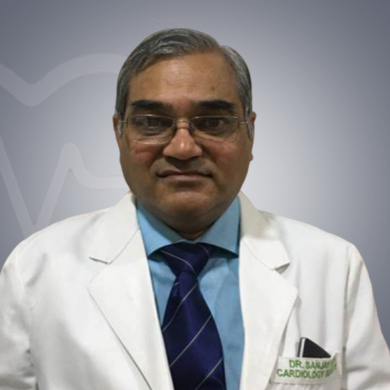
Cardiac Surgeon
Verified
Fortis Flt. Lt. Rajan Dhall Hospital , Delhi, India
33 Years of experience
Speaks: English
USD 50 USD 42 for video consultation
Dr Sanjay Gupta is one of the best Cardiac Surgeon in New Delhi, India. The medical specialist holds over 33 years of experience and is associated with Fortis Flt. Lt. Rajan Dhall Hospital.
Association and Memberships Dr. Sanjay Gupta is part of:
Certifications :
Qualifications :
Hospital Address :
Fortis Flt. Lt. Rajan Dhall Hospital, Vasant Kunj, Pocket 1, Sector B, Vasant Kunj, New Delhi, Delhi, India
Medical Expertise of Dr. Sanjay Gupta
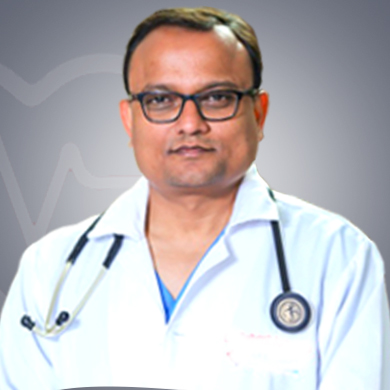
Interventional Cardiologist
Verified
Asian Institute of Medical Sciences , Faridabad, India
20 Years of experience
Speaks: English
USD 54 USD 45 for video consultation
Subrat Akhoury is a specialized Heart Specialist. And one of the most sought after medical specialists in India. The doctor has 20 Years of experience and is associated with, one of the best hospitals in Faridabad, India.

Cardiologist
Verified
Manipal Hospital, Ghaziabad , Ghaziabad, India
24 Years of experience
USD 54 USD 45 for video consultation
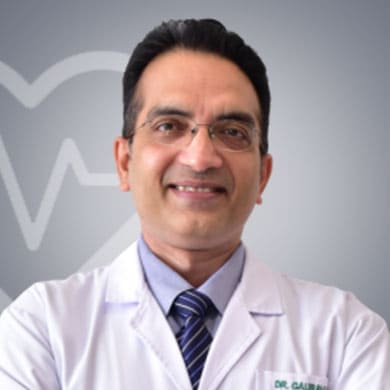
Cardiac Surgeon
Verified
Pushpawati Singhania Research Institute , Delhi, India
23 Years of experience
Speaks: English
USD 38 USD 32 for video consultation
Dr Gaurav Gupta is one of the most sought after Cardiac Surgeon in New Delhi, India. The clinician holds over 23 years of experience and is associated with Pushpawati Singhania Research Institute.
Association and Memberships Dr. Gaurav Gupta is part of:
Certifications :
Qualifications :
Hospital Address :
Pushpawati Singhania Research Institute, Phase II, Sheikh Sarai, New Delhi, Delhi, India
Medical Expertise of Dr. Gaurav Gupta
Heart specialists, also called Cardiologists, are doctors specialized in the diagnosis, treatment and prevention of cardiovascular disorders like severe hypertension, elevated cholesterol level to heart rhythm problems. Cardiologists not just diagnoses and treats heart conditions but they also perform procedures that help diagnose as well as treat the heart conditions.
Heart specialist who specializes in performing the procedures (invasive and non-invasive) for treating the cardiac disorders and conditions are Cardiac Surgeons. Likewise, a specialized cardiologist may perform procedures to treat specific problems. For instance, interventional cardiologists place stents in clogged arteries, close small holes in the heart and place specialized devices in the heart or a pediatric cardiologists who are the heart specialists specialized in the diagnosis, treatment, medical management and prevention of heart disorders in children.
| Doctor | Associated Hospital |
|---|---|
| Dr. Vaidotas Zabulis | Kardiolita Hospital, Vilnius, Vilnius |
| Dr. Ashish Chauhan | Sarvodaya Hospital and Research Centre, Faridabad |
| Dr. Sarita Gulati | Manipal Hospital, Dwarka, New Delhi |
| Dr. Juli Carballo | Centro Medico Teknon, Barcelona |
| Dr. Bikram K Mohanty | Venkateshwar Hospital, New Delhi |
| Dr. Ahmet Anil Sahin | Liv Hospital Ulus, Istanbul |
| Dr. Vichai Benjacholamas | Bangpakok 9 International Hospital, Bangkok |
| Dr. Shailendra Lalwani | Manipal Hospital, Dwarka, New Delhi |
Take action and have it examined by a specialist if you see any signs of heart disease, such as excessive cholesterol or high blood pressure. With MediGence, you may contact a top-notch heart specialist in just one click without needing to commute, wait in long queues, spend excessive thousands of dollars, or take the stress. For your initial care, telemedicine is a high-end, specialized service that allows you to organize your trip later. Consulting with a heart specialist of your choice is an important decision in your healthcare journey. Let us have a look at the reasons to avail online consultation with heart specialists-
Please make sure to see your doctor using Telemedicine before you even board a flight
Popular Heart Specialist in Top Countries are :
Top Speciality Doctors Worldwide:
List of Top Rated Hospitals where we can find Heart Specialist Worldwide are as followed:
Yes, we provide the list of Heart Specialist worldwide in the following languages:
Given below are some of the most sought after heart specialist available for online consultation:
Listed below are some of the top hospitals where heart specialist work:
A cardiologist or a heart specialist is a doctor who studies, diagnoses, and treats conditions of the cardiovascular system, i.e., the heart and blood vessels. Cardiologists are also qualified to treat heart attacks, arrhythmia, heart failure, heart valve disease, and high blood pressure.
To make a diagnosis, cardiologists may carry out physical exams, order tests like an electrocardiogram (EKG), blood tests, exercise stress tests, and interpret tests. They also prescribe medications and recommend lifestyle changes such as reducing stress levels, diet, exercise, and managing weight. Heart specialists or cardiologists can perform various procedures, such as inserting a cardiac catheter or implanting a pacemaker. Cardiologists may also teach at universities and conduct research within labs to develop new treatments.
Different types of heart doctors are:
To become a heart specialist or cardiologist, you need to go through a long period of medical education for acquiring board certification and licensure. After completing 10+2 with PCB, a candidate can continue your further studies towards becoming a cardiologist.
These doctors have special training in the field of cardiology. Cardiologists have to complete MBBS before focusing on heart-related specialties.
A cardiologist undergoes many years of medical training. Basic steps to become a cardiologist are:
Some common cardiac conditions treated by a heart specialist are:
Your cardiologist may order some medical tests to help find out what heart condition you are suffering from. Some of these tests are explained below.
Called a silent killer, heart diseases often occur with no symptoms until a major health event like a heart attack or a stroke occurs. This is the reason why it’s important to assess your risk factors now to recognize the early signs and seek preventative treatment. The presence of any of the below nine factors may the reason to seek the help of a heart specialist or cardiologist:
Your first appointment with a heart specialist will involve a check of your vitals, which is a non-invasive method to measure your heart’s electrical activity. Also, the clinical staff will note all details about your family and health history that a cardiologist or heart specialist should know.
Your cardiologist will thoroughly examine your heart health and might suggest some tests that can include urine or blood tests, an electrocardiogram (EKG), an PET, MRI, or CT scan, or a stress test. A heart specialist can diagnose any existing condition and determine future risks. They will also help create a routine that benefits your overall heart health and reduces your risk of developing heart conditions.
Below are somecommon procedures performed by a Heart Specialist:
A cardiologist or a heart specialist is a doctor who studies, diagnoses, and treats conditions of the cardiovascular system, i.e., the heart and blood vessels. Cardiologists are also qualified to treat heart attacks, arrhythmia, heart failure, heart valve disease, and high blood pressure.
To make a diagnosis, cardiologists may carry out physical exams, order tests like an electrocardiogram (EKG), blood tests, exercise stress tests, and interpret tests. They also prescribe medications and recommend lifestyle changes such as reducing stress levels, diet, exercise, and managing weight. Heart specialists or cardiologists can perform various procedures, such as inserting a cardiac catheter or implanting a pacemaker. Cardiologists may also teach at universities and conduct research within labs to develop new treatments.
Different types of heart doctors are:
To become a heart specialist or cardiologist, you need to go through a long period of medical education for acquiring board certification and licensure. After completing 10+2 with PCB, a candidate can continue your further studies towards becoming a cardiologist.
These doctors have special training in the field of cardiology. Cardiologists have to complete MBBS before focusing on heart-related specialties.
A cardiologist undergoes many years of medical training. Basic steps to become a cardiologist are:
Some common cardiac conditions treated by a heart specialist are:
Your cardiologist may order some medical tests to help find out what heart condition you are suffering from. Some of these tests are explained below.
Called a silent killer, heart diseases often occur with no symptoms until a major health event like a heart attack or a stroke occurs. This is the reason why it’s important to assess your risk factors now to recognize the early signs and seek preventative treatment. The presence of any of the below nine factors may the reason to seek the help of a heart specialist or cardiologist:
Your first appointment with a heart specialist will involve a check of your vitals, which is a non-invasive method to measure your heart’s electrical activity. Also, the clinical staff will note all details about your family and health history that a cardiologist or heart specialist should know.
Your cardiologist will thoroughly examine your heart health and might suggest some tests that can include urine or blood tests, an electrocardiogram (EKG), an PET, MRI, or CT scan, or a stress test. A heart specialist can diagnose any existing condition and determine future risks. They will also help create a routine that benefits your overall heart health and reduces your risk of developing heart conditions.
Below are somecommon procedures performed by a Heart Specialist: